Special New Faculty Welcome Issue
Welcome to these faculty members who have joined us in recent months:
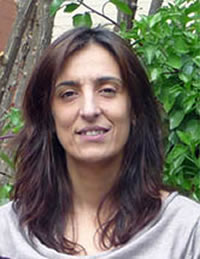 Leonor Boavida, Assistant Professor, Botany and Plant Pathology. Leonor earned a bachelor’s degree in biology and her doctorate in cellular biology from the Faculty of Sciences at the University of Lisbon, Portugal. She conducted postdoctoral research at the University of California, Berkeley Plant Gene Expression Center and then at the Gulbenkian Institute of Science in Portugal. At Purdue, her research is centered on understanding the molecular and cellular basis of plant fertilization. Specifically, she aims to combine cutting-edge experimental tools to identify signaling platforms relevant in the context of cell-cell recognition, adhesion, fusion and activation of development. Her goal is to uncover the secrets of plant fertilization as well as related evolutionary and taxonomic variations that can eventually be used for future applications in plant breeding programs. Leonor Boavida, Assistant Professor, Botany and Plant Pathology. Leonor earned a bachelor’s degree in biology and her doctorate in cellular biology from the Faculty of Sciences at the University of Lisbon, Portugal. She conducted postdoctoral research at the University of California, Berkeley Plant Gene Expression Center and then at the Gulbenkian Institute of Science in Portugal. At Purdue, her research is centered on understanding the molecular and cellular basis of plant fertilization. Specifically, she aims to combine cutting-edge experimental tools to identify signaling platforms relevant in the context of cell-cell recognition, adhesion, fusion and activation of development. Her goal is to uncover the secrets of plant fertilization as well as related evolutionary and taxonomic variations that can eventually be used for future applications in plant breeding programs.
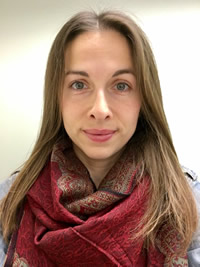 Laramy Enders, Assistant Professor, Entomology. Laramy earned a bachelor’s degree in ecology and evolutionary biology from the University of Rochester and a doctorate in evolution, ecology and organismal biology from the University of California-Riverside. She did postdoctoral research at the University of California-Riverside, the University of Nebraska-Lincoln, and Kansas State University (including two years as an NIFA AFRI postdoctoral fellow) before coming to Purdue in January 2017. Her research focuses on how stress shapes insect-plant interactions, particularly as mediated by insect microbial symbionts. Laramy Enders, Assistant Professor, Entomology. Laramy earned a bachelor’s degree in ecology and evolutionary biology from the University of Rochester and a doctorate in evolution, ecology and organismal biology from the University of California-Riverside. She did postdoctoral research at the University of California-Riverside, the University of Nebraska-Lincoln, and Kansas State University (including two years as an NIFA AFRI postdoctoral fellow) before coming to Purdue in January 2017. Her research focuses on how stress shapes insect-plant interactions, particularly as mediated by insect microbial symbionts.
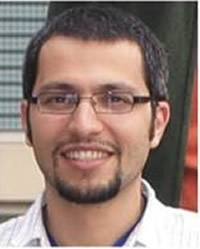 Majid Kazemian, Assistant Professor, Biochemistry. Majid earned a PhD in computer science at the University of Illinois at Urbana-Champaign with major focus on computational biology. He did postdoctoral research in the Laboratory of Molecular Immunology at the National Heart, Lung and Blood Institute. His primary appointment is in the Department of Biochemistry with a secondary appointment in the Department of Computer Science. Majid’s research focuses on acquiring and utilizing high-throughput genome sequencing data to create new computational models and biological assays to study genome regulation. His lab will initially work on the discovery and modeling of the regulatory circuitry of the non-coding genome, which is essential for maintaining normal cellular physiology. Majid Kazemian, Assistant Professor, Biochemistry. Majid earned a PhD in computer science at the University of Illinois at Urbana-Champaign with major focus on computational biology. He did postdoctoral research in the Laboratory of Molecular Immunology at the National Heart, Lung and Blood Institute. His primary appointment is in the Department of Biochemistry with a secondary appointment in the Department of Computer Science. Majid’s research focuses on acquiring and utilizing high-throughput genome sequencing data to create new computational models and biological assays to study genome regulation. His lab will initially work on the discovery and modeling of the regulatory circuitry of the non-coding genome, which is essential for maintaining normal cellular physiology.
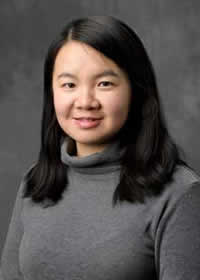 Ying Li, Assistant Professor, Horticulture and Landscape Architecture. Ying earned her bachelor's degree in biological sciences from Tsinghua University, China. She earned first a master's and then a PhD degree in crop sciences from University of Illinois at Urbana-Champaign. She spent five years as a postdoctoral researcher at New York University, working on systems biology of nitrogen use in plants. At Purdue, her work will focus on understanding and improving how crops respond to environmental stimuli at molecular and systems levels. Specifically, she aims to apply state-of-art molecular tools and computational approaches to probe gene regulatory networks underlying environmental responses, including both transcriptional regulation and histone modification changes. The ultimate goal is to identify key molecular players to engineer better crops that are more resilient to adverse conditions. Ying Li, Assistant Professor, Horticulture and Landscape Architecture. Ying earned her bachelor's degree in biological sciences from Tsinghua University, China. She earned first a master's and then a PhD degree in crop sciences from University of Illinois at Urbana-Champaign. She spent five years as a postdoctoral researcher at New York University, working on systems biology of nitrogen use in plants. At Purdue, her work will focus on understanding and improving how crops respond to environmental stimuli at molecular and systems levels. Specifically, she aims to apply state-of-art molecular tools and computational approaches to probe gene regulatory networks underlying environmental responses, including both transcriptional regulation and histone modification changes. The ultimate goal is to identify key molecular players to engineer better crops that are more resilient to adverse conditions.
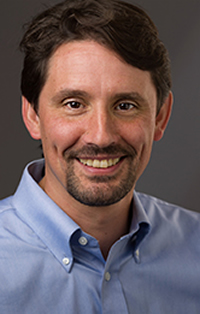 Christopher Oakley, Assistant Professor, Botany and Plant Pathology. Chris earned his bachelor’s degree in botany from the University of Washington and M.S. and Ph.D. degrees in biological science from Florida State University, working on plant reproductive strategies and the genetic consequences of small population size. He spent five years as a postdoctoral associate at Michigan State University working on the genetic basis of local adaptation and freezing tolerance in Arabidopsis thaliana. He uses experimental, genetic, and genomic approaches to investigate the ecological and evolutionary genetics of plants. His lab will focus on identifying the mechanisms that underlie local adaptation. Specifically, he is interested in understanding how individual sequence polymorphisms result in changes in gene and trait expression that increase performance in one environment, but decrease performance in contrasting environments. Christopher Oakley, Assistant Professor, Botany and Plant Pathology. Chris earned his bachelor’s degree in botany from the University of Washington and M.S. and Ph.D. degrees in biological science from Florida State University, working on plant reproductive strategies and the genetic consequences of small population size. He spent five years as a postdoctoral associate at Michigan State University working on the genetic basis of local adaptation and freezing tolerance in Arabidopsis thaliana. He uses experimental, genetic, and genomic approaches to investigate the ecological and evolutionary genetics of plants. His lab will focus on identifying the mechanisms that underlie local adaptation. Specifically, he is interested in understanding how individual sequence polymorphisms result in changes in gene and trait expression that increase performance in one environment, but decrease performance in contrasting environments.
|